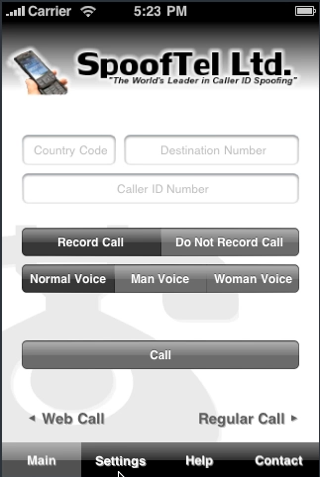
What can you do if your number is being spoofed? A hacker could spoof your home phone number and gain access to your voice mail if you do not set a password. Some voicemail services are preset to allow access if you call in from your own phone number. If you have a voice mail account with your phone service, be sure to set a password for it.Use caution if you are being pressured for information immediately.If you get an inquiry from someone who says they represent a company or a government agency seeking personal information, hang up and call the phone number on your account statement, in the phone book, or on the company’s or government agency’s website to verify the authenticity of the request.Never give out personal information such as account numbers, Social Security numbers, mother’s maiden names, passwords, or other identifying information in response to unexpected calls or if you are at all suspicious.Be careful about responding to any request for personal identifying information. You may not be able to tell right away if an incoming call is spoofed. What can you do if you think you’re being spoofed?

If you think you’ve been the victim of a spoofing scam, you can file a complaint with the FCC.Ĭaller ID lets consumers avoid unwanted phone calls by displaying caller names and phone numbers, but the caller ID feature is sometimes manipulated by spoofers who masquerade as representatives of banks, creditors, insurance companies, or even the government.

If you answer, they use scam scripts to try to steal your money or valuable personal information, which can be used in fraudulent activity. Scammers often use neighbor spoofing so it appears that an incoming call is coming from a local number, or spoof a number from a company or a government agency that you may already know and trust. Spoofing is when a caller deliberately falsifies the information transmitted to your caller ID display to disguise their identity.


 0 kommentar(er)
0 kommentar(er)
